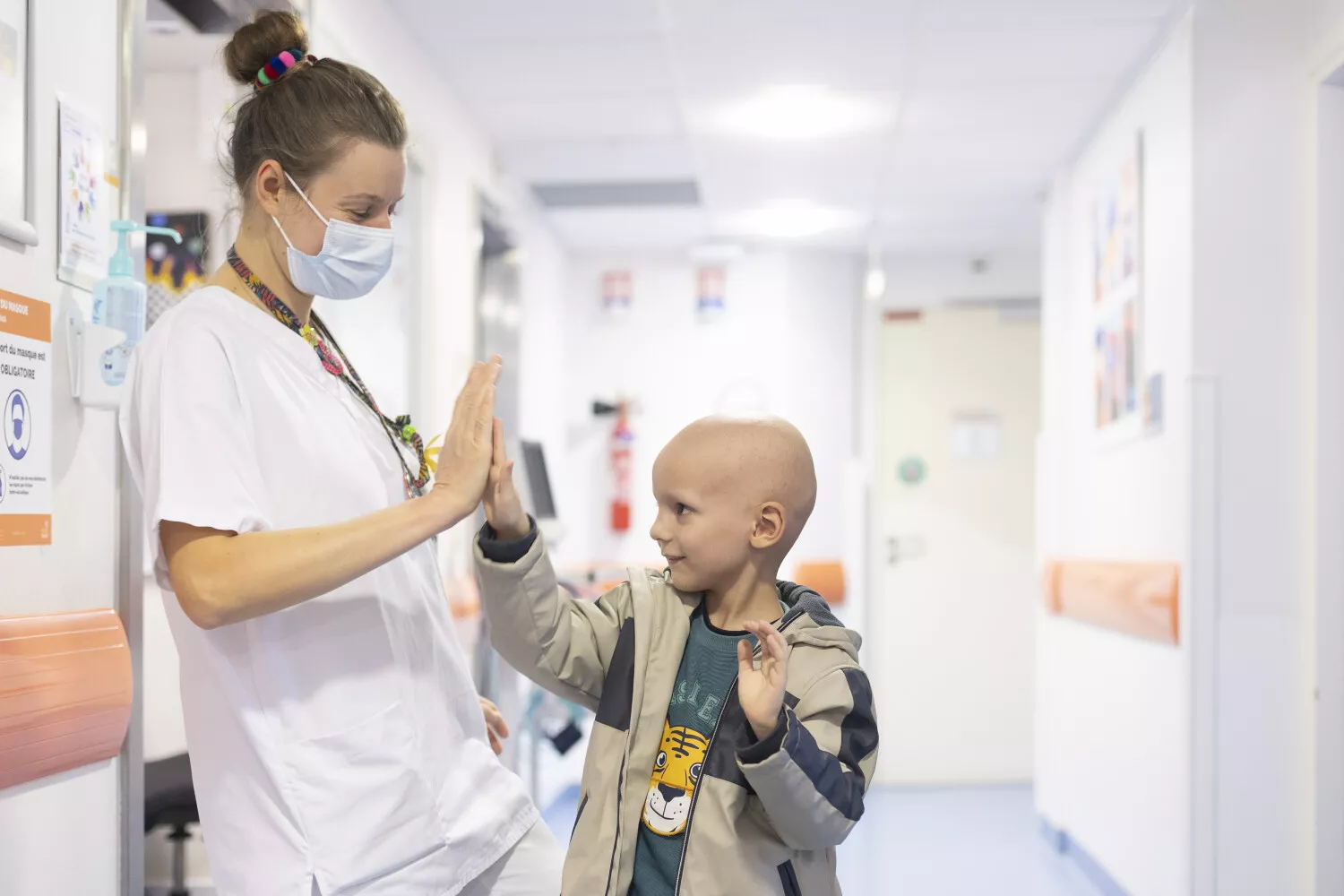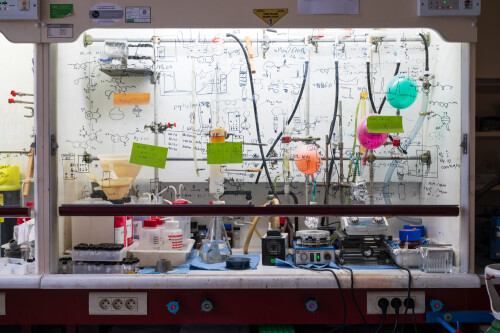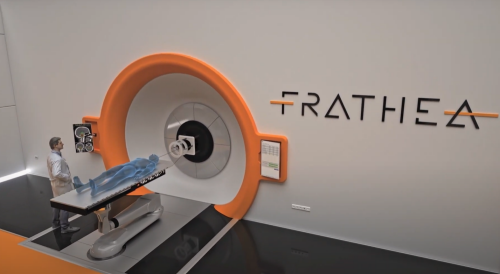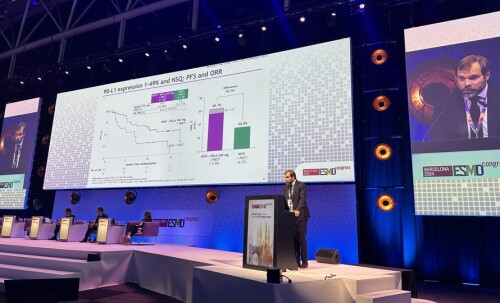These cancers, which affect over 2,200 patients every year in France, remain the leading cause of disease-related death among young people in France and Europe. Thanks to enormous progress made in recent decades, the average five-year survival rate now exceeds 80%.
Caring for the whole child, not just the disease
Because cancer turns a child's life upside down, Institut Curie never conceives of pediatric care without comprehensive support. Schooling, recreational activities, sports, art, psychological support, social support—everything is done so young patients can keep growing despite their illness.
Life goes on at the hospital, as shown by the wide range of activities at Institut Curie: teachers, theater or radio projects, science or digital creation workshops. Working with partner associations and medical teams, these initiatives aim to maintain social links, stimulate the imagination and combat isolation.
To strengthen this approach further, a new building dedicated to pediatrics is under construction at the Paris hospital site. This new space will bring together hospital services and research laboratories in one location. More spacious, brighter and more functional, it has been designed in consultation with families and associations. The goal is to provide a more welcoming and soothing care environment, where young patients can thrive with their loved ones in a setting that respects their physical and emotional needs. This ambitious architectural project illustrates Institut Curie's determination to place children and families at the heart of care, while taking into account daily life, emotions, projects and dreams.
Structured research for young patients
With 700 young patients treated every year, including almost 350 new cases, Institut Curie is one of France's leading centers for childhood, adolescent and young adult cancers. Its SIREDO center— Care, Innovation & Research in Childhood, Adolescent and Young-Adult Oncology—brings together research, care and teaching dedicated to patients under 25.
Thanks to national and European public funding, the support of French, European and international associations, and the generosity of the public, Institut Curie's multidisciplinary teams conduct research with a strong focus on solid tumors: neuroblastomas, rhabdoid tumors, sarcomas, retinoblastomas and brain tumors such as medulloblastomas. Fundamental, translational and clinical research is always carried out in national and international collaborations.
Initiated nearly 50 years ago, this commitment reached a new milestone in 2025: Since January 1, six research teams working on pediatric cancers at Institut Curie have joined forces in a new research unit, headed by Dr. Olivier Ayrault (2), CNRS research director and recognized expert in childhood brain tumors.
This new unit, Mechanisms of Oncogenesis in Childhood Tumors (Inserm, CNRS, Institut Curie), enhances the coherence, visibility and effectiveness of pediatric oncology research. It brings together expertise in oncogenetics, imaging, cellular biology and tumor modeling. This is a strong signal in favor of a better understanding of pediatric cancers and the development of increasingly targeted, effective and better-tolerated treatments. It also provides new momentum for cross-disciplinary collaboration between clinicians, researchers and biologists.
A research-care continuum that sets new standards
The strength of Institut Curie lies in its integrated model: laboratory discoveries directly inform care protocols, while clinical observations guide research. This continuum is particularly valuable in the fight against pediatric cancers, which are often rare and complex. This synergy between fundamental, translational, clinical research and care enables constant adaptation of treatment to the latest knowledge. At Institut Curie, several innovative protocols have been tested and then adopted more broadly, helping to raise national and international standards.
For example, Institut Curie teams have acquired global expertise in the study of the ALK (Anaplastic Lymphoma Kinase) gene and its abnormalities, which are at the root of certain pediatric cancers. This pioneering work contributed to the development of anti-ALK inhibitors, a therapeutic strategy against several tumor types, particularly neuroblastoma. Another example is research into childhood fibrosarcoma with anti-NTRK inhibitors, where Institut Curie teams' work has helped change the standard of care. In addition, SIREDO teams are developing liquid biopsies, which hold great promise for improving diagnosis, treatment and follow-up of pediatric tumors.
The joint work of SIREDO and the new research unit opens up major prospects: a better understanding of resistance to treatment, development of new therapeutic approaches, and personalized treatment pathways. At every stage, the aim is twofold: to increase chances of cure and reduce after-effects, while improving quality of life both during and after the illness.
 The SIREDO team includes... > 60 caregivers > 70 scientists > 1 dedicated research unit with 6 teams > 700 young patients treated annually, including 350 new cases. > 36 clinical studies in 2024 including 147 children, adolescents, and young adults |

|
Words from researchers and caregivers Dr. Olivier Ayrault, CNRS Research Director, Director of the Mechanisms of Oncogenesis of Childhood Tumors research unit (CONCERT, Inserm U1330/Institut Curie) " For the first time, six research teams are working together in a unit dedicated to pediatric cancers, near the hospital department. With two of our teams led by doctors, the link between laboratory and hospital is natural and almost immediate, encouraging exchanges, circulation of ideas and pooling of expertise. Working together daily on the same subject makes all the difference. And at Institut Curie, we are fortunate to draw on excellent fundamental research—in immunology, epigenetics and developmental biology. This is what enables us to design and develop treatments that are ever more appropriate and less aggressive for children." Dr. Daniel Orbach, Deputy Clinical Director of SIREDO “ At the heart of our hospital, the pediatric department is a joyful bubble full of emotion. Our team is driven by two convictions: to ensure continuity in children's lives, and to support families in every way, from diagnosis through treatment.” Marjolaine Renouard, Senior Nurse "Our role is to support the young patient and family, alongside other caregivers: nurses, childcare assistants and hospital staff." Educators Emmanuelle Malarmey and Nathalie André " It doesn't matter how many children take part in an activity—if it helps even one, it has value." Teachers Anne Redzic and Jeanne Pierre (French Ministry of Education) “We visit each child every day and adapt lessons to their needs, health status and motivation.” Sandra Quié, Youth Unit Activity Leader (AJA) “In the midst of their transition to adulthood, teenagers see their wings cut by illness. We are here to act as a parachute. They also have the right to say no, and it's important to give them some control over their lives. Fatigue, depression, school or housing difficulties… with associations, we offer solutions.” Sandra Toscani, Social Worker at Institut Curie “From the start of treatment, I meet each family to identify financial needs and help them manage social matters throughout what can be years of care. The aim is to enable parents who wish to do so to reconcile work and treatment attendance, while also caring for siblings and family projects.” Lamia Kediha, President of Enfants de Curie - APAESIC “For 40 years, we have supported hospitalized children and families by offering weekly escapes: music workshops, clowns, knitting, storytelling and Saturday snacks that bring lightness to daily life. All our actions pursue the same goal: to ease daily life and preserve precious moments of childhood and serenity, because even in hospital, life goes on. Alongside medical and social teams, we also provide material support to the most vulnerable families.” |
(1) SIREDO: Care, Innovation & Research in Childhood, Adolescent & Young-Adult Oncology
(2) Dr. Olivier Ayrault also heads the “Signaling Pathways in Pediatric Neuro-Oncology” research team at Institut Curie (certified as Joint Research Team 8001 CNRS).



